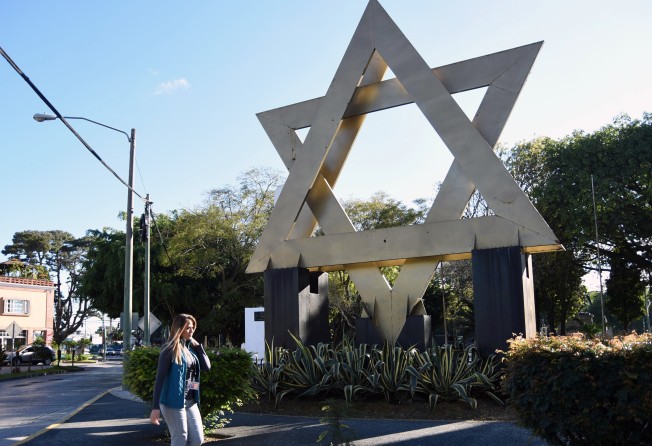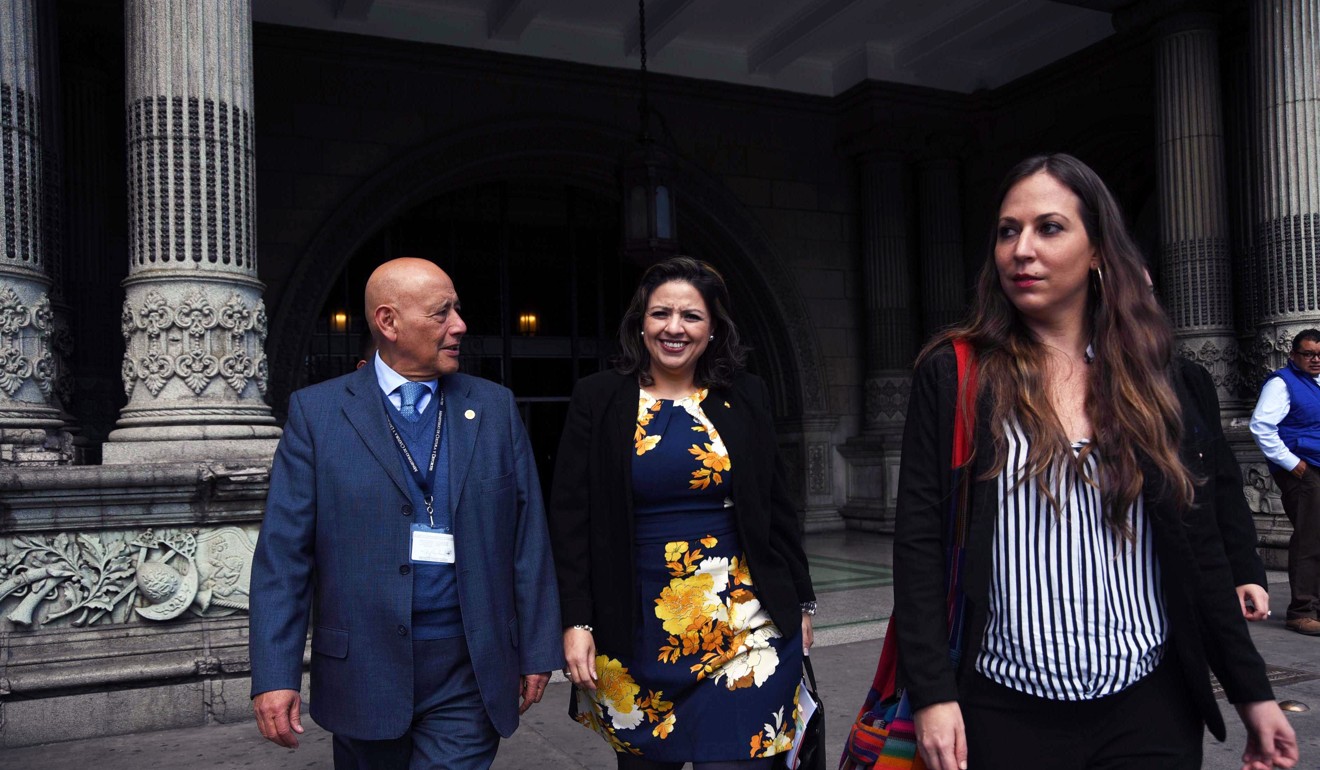The real reasons why Guatemala and Honduras sided with Trump on Jerusalem

Amid the roar of condemnation over the Trump administration’s stance on Jerusalem, there were bleats of support from far-flung corners of the world.
In the vote at the United Nations last week on whether to condemn the decision to recognise Jerusalem as Israel’s capital, Micronesia sided with the United States along with an archipelago of geopolitically obscure outposts: The Marshall Islands, Togo, Nauru, Palau.
And then there was a pair of allies closer to home – Guatemala and Honduras, the only two countries in Latin America to support the US move.
Guatemala followed up its UN vote by announcing this week that it would follow Trump’s lead and move its embassy from Tel Aviv to Jerusalem, a decision that has caused a backlash in the region and beyond.
Jordan’s foreign minister described it as an “absurd provocation.” Bolivian President Evo Morales, a veteran critic of the United States, wrote Monday on Twitter that Guatemala had “sold its dignity to the empire to not lose the crumbs from USAID.”
After the vote on Jerusalem, the US ambassador to the United Nations, Nikki Haley, invited those countries who did not condemn Washington to come to a reception to thank them for their “friendship to the United States.”
Guatemala and Honduras have a lot to lose by upsetting the Trump administration, as the crackdown on illegal immigration has raised the prospect of more deportations, and regional trade and foreign aid have been called into question.
But analysts see their actions last week as more than just attempts to curry favour with Washington. Both countries have long-standing ties to Israel and are facing domestic challenges that are helped by aligning with conservatives in the United States and Israel.
Guatemalan President James Morales, a former television comedian and an evangelical Christian, relies on the support of his country’s influential evangelical community, which has consistently advocated for Israel’s right to have Jerusalem as its capital, considering it a biblical issue as much as a political one.
As the Israeli newspaper Haaretz recently noted, Morales’s first visit outside the Americas as president, in 2016, was to Israel, where he received an honorary doctorate and the two countries signed agreements on agriculture and science.
In addition, Israel gave military aid to the government for its fight against leftist guerillas during Guatemala’s civil war in the 1980s. Conservative members of the Guatemalan military remain key supporters of Morales.
“He’s trying to please his political base,” said Fernando Carrera, a former Guatemalan foreign minister and ambassador to the United Nations. “He’s also trying to close the gap of confidence with the United States.”
That gap widened over the summer when Morales tussled with a US-backed anti-corruption group. Morales’s attempt to expel Ivan Velasquez, the head of the International Commission Against Impunity in Guatemala (CICIG), who was investigating campaign finance issues, caused an international uproar.
After that, Carrera said, Morales was “not considered that credible and trustworthy in Washington.”
“He’s trying to strengthen his position,” Carrera added.
“He wants to push for an agenda that seems to be very much in line with the most conservative geopolitical analysts in the world.”
On Tuesday, Guatemala’s foreign minister, Sandra Jovel, defended the decision to move the embassy and called it “a foreign policy decision, therefore sovereign.”
“What we are doing is being coherent with our foreign policy and the ally we have been for Israel,” she said.

The president of Honduras, Juan Orlando Hernandez, is also in a politically precarious position and could use the Trump administration’s help.
Protests have roiled Honduras for the past month after a disputed election. The US State Department recognised Hernandez as the winner over challenger Salvador Nasralla, despite calls by the Organisation of American States for a revote.
And The Trump administration is still considering whether to deport some 57,000 Hondurans living with temporary immigration status in the United States.
Honduras has also received military aid from Israel that has worried its neighbours and raised human rights concerns.
Many expect that Honduras could also announce its intention to move its embassy to Jerusalem. One Latin American diplomat, who spoke on the condition of anonymity because he was not authorised to comment publicly, said there is a “strong possibility of Honduras being next.”
For the embattled leaders of Honduras and Guatemala, siding with the Trump administration seems their safest bet.
“It speaks to the isolation of these countries and their need to find friends,” said David Holiday, a Central America expert at the Open Society Foundations.
“Any chance they can get to earn brownie points, they’re going to do that.”